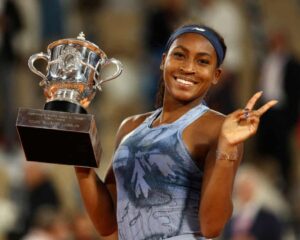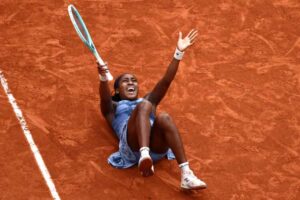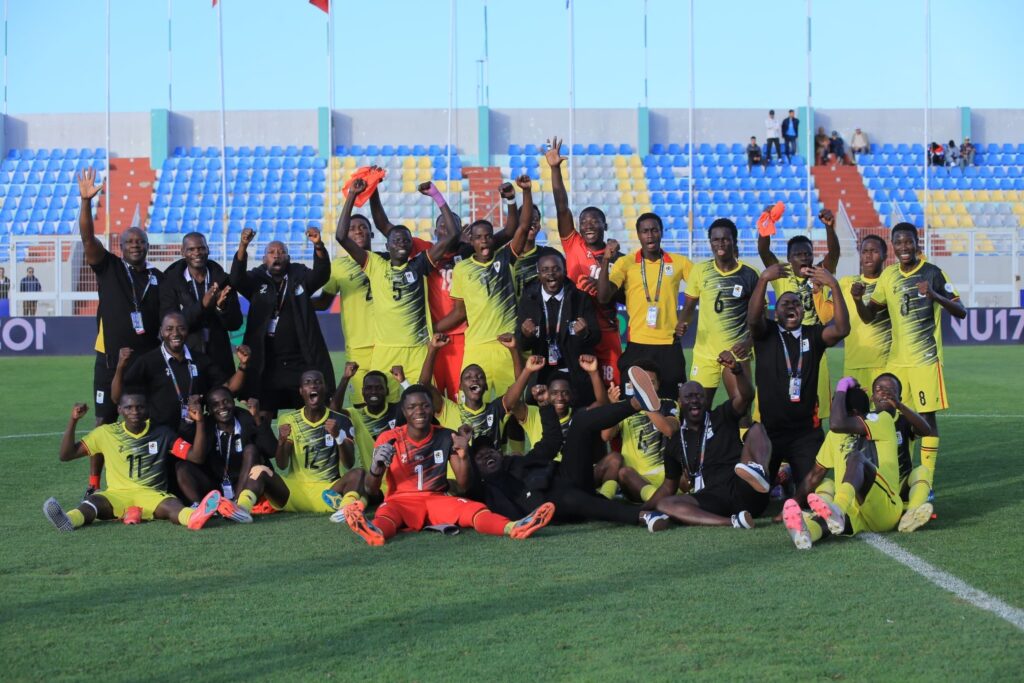Coco Gauff claims first French Open title after fightback floors Aryna
In her half-decade competing at the highest level, Coco Gauff has built an impermeable reputation for her toughness in battle. No matter the significance of the occasion or the state of her strokes, she will fight with everything at her disposal and make life incredibly difficult for any opponent. More often than not, she will find a way through.
Across the net from the best player in the world in one of the most important occasions of her career, Gauff showed the full magnitude of her grit and durability to topple Aryna Sabalenka 6-7 (5), 6-2, 6-4 and win her first French Open title.
When Gauff first emerged on the tour as a precocious 15-year-old in 2019, many people had doubts about whether she would be able to live up to the hype and establish herself as a major champion. She has had well-documented struggles with her serve and forehand, and every step of her journey has been scrutinised. Regardless of the difficulties and setbacks, she just kept on working. At just 21 years old she is now a two-time grand slam champion.

Since losing her first final at Roland Garros in 2022 aged 18, Gauff has won her two subsequent grand slam finals and now holds a 10-3 record in finals overall. “I was going through a lot of things when I lost in this final three years ago,” said Gauff. “I’m just happy to be here, a lot of dark thoughts. Just the fact that I stayed to it just means a lot.”
This victory also underlines the importance of remaining patient. After a difficult start to the season, Gauff found her form on the red clay, reaching finals at the Madrid Open and Italian Open. Gauff lost to Sabalenka in two tough sets in Madrid before squandering a significant opportunity against Jasmine Paolini in Rome. In the biggest clay court tournament of all, she rose to the occasion. “I got the most important one, so I guess that’s all that matters,” she said.

 El Jadida, Morocco | FUFA.COM | The Uganda U17 national team, the Cubs, have made history by becoming the first Ugandan football team ever to qualify for a FIFA World Cup tournament after a hard-fought 2-1 victory over The Gambia in a high-stakes playoff in Morocco.
El Jadida, Morocco | FUFA.COM | The Uganda U17 national team, the Cubs, have made history by becoming the first Ugandan football team ever to qualify for a FIFA World Cup tournament after a hard-fought 2-1 victory over The Gambia in a high-stakes playoff in Morocco.
















